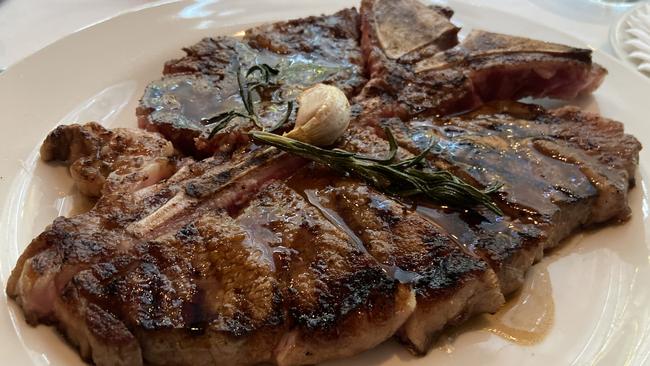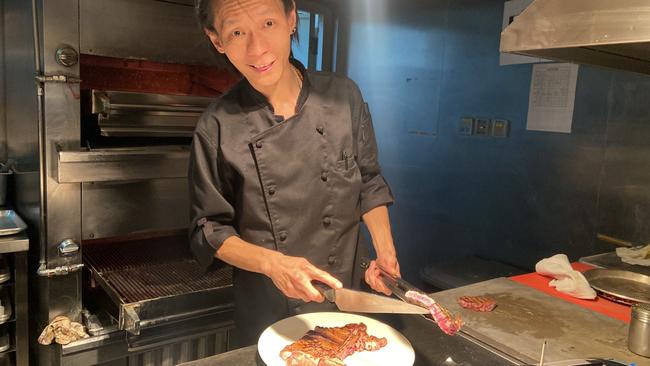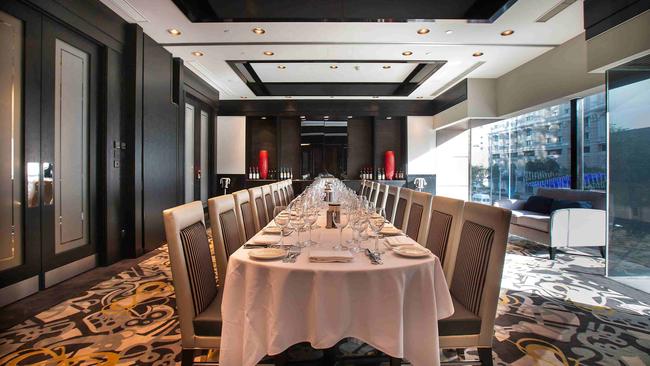Trump’s gift to Australia – a beef monopoly in China
China has effectively blocked US beef from entering the country, and is instead looking to Australia to fill the vacuum with even the most patriotically American branded restaurants looking increasingly Aussie.

After all his grumbling about Australian beef farmers, President Donald Trump has just gifted them near monopoly status in China’s almost $5 billion premium beef market.
In a matter of weeks, China’s high-end beef market has been up-ended as Beijing has again used the trade to deal out punishment – this time on Trump’s America.
Chinese officials have effectively blocked American beef from entering the country, leaving Australia with the top of the market almost to itself. America sold $2.4 billion (US$1.6 billion) to China in 2024.
“America has just gone up in smoke in front of our eyes,” said a source, speaking anonymously because of the political sensitivity of Australia benefiting economically from the misfortune of its security ally.
Beef is Australia’s biggest agricultural export to China, worth more than the wine and lobster trade combined. Australian farmers sold $2.2 billion worth of beef to China in 2024, making it Australia’s second biggest beef market after America (which bought a whopping $4.4 billion worth of Australian beef to the chagrin of the Trump administration).
Right now, the biggest China problem for Australian farmers is whether they can rustle up enough cows to fill the lucrative American-shaped gap.
None want to relinquish the new markets they grew during Beijing’s 2020-24 trade tantrum. They know their privileged status in China may not last.
Mr Trump and China’s President Xi Jinping have agreed to send senior officials to Switzerland to discuss their respective tariff walls this weekend. Those talks could eventually lead to a breakthrough that allows the resumption of America’s beef trade, although they are taking place after months of bad-will between the two sides and with both sides talking down their prospects.
“It depends on President Trump,” said the manager of one high-end steakhouse in Beijing.
Mr Xi, who has a long history of targeting agricultural products in his various trade vendettas, also has a vote. Australia’s recent experience shows how China’s leader can drag these things out for years.
With billions of premium beef sales potentially up for grabs, a herd of Australian beef exporters will fly into Shanghai within a fortnight for SIAL China, an important trade event for the food and beverage industry in the world’s second biggest economy.
They will arrive in the wake of praise from Beijing for Anthony Albanese’s reelection and as Chinese state media talks up the future of trade ties between Australia and China.
Australian wine exporters, along with exporters of cotton, timber, wheat and lobsters, are also experiencing a role reversal, as these former victims of Beijing’s trade restrictions now find themselves benefiting from Chinese trade imposts on America and Canada.
Favourable bilateral politics — and a desire to find non-American supplies — also helped Australian gas giant Woodside recently snare a 15 year long supply agreement with a Chinese state owned giant.
It is a dramatic reversal of fortunes for Australian farmers. Some of the current beef beneficiaries were only allowed to sell again into the Chinese market months ago after being frozen out for almost four years by Beijing during its epic $20 billion trade coercion campaign on Australia.
Beijing’s first strike on the US herd came in March, as Chinese officials refused to renew trading licenses for American beef companies. “There’s nothing coming in. Even if they are getting [American product] to port, [Chinese officials] are turning it away,” said a person familiar with the situation.
Then in April, Mr Xi responded to Mr Trump’s 145 per cent tariffs on China with a 125 per cent imposed on American imports. Even if American beef could get into China, those tariffs would decimate the trade.

Kevin Wang, a Beijing-based sales manager of high-end beef importer Tenderplus, said many Chinese beef traders were now reinventing themselves as Australian importers.
“The interest of Chinese beef traders in Australian beef is dramatically increasing,” Mr Wang told The Australian.
“People are looking for Australian partners to import beef. Some have already flown to Australia to talk with trade partners,” he said.
Menus have already been reprinted at premium restaurants around China. Even the most patriotically American branded places are looking increasingly Australian.
The Shanghai and Beijing branches of New York institution Wolfgang’s Steakhouse are now selling Australian porterhouse, striploin, rib eye and filet mignon as its supplies of American beef are weeks away from extinction.
American BBQ restaurant Homeplate in Chengdu and Beijing has also made the switch. The menu promises BBQ just like in the “Texas Hill Country”, but its chefs are now using fatty Australian M5 for its smoked meat.
Near the centre of Beijing, the ritzy branch of “Morton’s of Chicago” – which is owned by Houston billionaire Tilman Fertitta, who Mr Trump has described as his “twin” and has just appointed to be his Ambassador to Italy – looks increasingly like a Neil Perry restaurant.
Morton’s has even swapped its house red from an American drop to a Clare Valley Shiraz, a lovely match with its Australian porterhouse from Rangers Valley in NSW’s northern tablelands. “By the glass” American reds in China will remain shelved so long as tariffs remain at their crippling current levels.

China’s biggest sources of beef are Brazil and Argentina, but they sell at the cheaper end of the market. The South Americans’ conspicuous success has been at the expense of Chinese farmers and has triggered a “safeguards” investigation from Beijing that hangs over the entire industry.
Restrictions on other high-end sellers Japan and Canada effectively shut them out of China’s market.
The results of Beijing’s “safeguards” investigation, due in the second half of the year, could see it increase tariffs on foreign suppliers. High volume, low cost sellers look to be most at risk, but it could shrink the size of China’s market considerably — including the premium end,
Russian producers have also flooded China after the Ukraine war, but the quality is not good enough for high end restaurants.
“Russian pork is fine. Their beef just tastes a bit funky,” said a restaurant manager in Beijing. He said his kitchen had recently switched from American beef to Australian




To join the conversation, please log in. Don't have an account? Register
Join the conversation, you are commenting as Logout